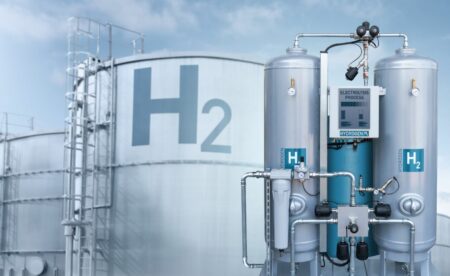Primary Hydrogen Corp. has launched Phase 2 of its natural hydrogen exploration program across its Atlantic Canada projects, marking a focused effort to uncover viable natural hydrogen accumulations in Newfoundland and Labrador.
Brazil’s ambition to become a global green hydrogen exporter has hit a critical regulatory roadblock. On July 3, the Federal Public Ministry (MPF) filed a civil action seeking the immediate suspension of all activities at a hydrogen production facility under construction in the Export Processing Zone (ZPE) of Parnaíba, Piauí.
Hyundai Motor India’s decision to anchor a ₹100 crore hydrogen R&D facility within IIT Madras’ Discovery Campus signals more than corporate social responsibility—it positions the company at the intersection of industrial decarbonization, domestic innovation policy, and India’s long-range energy independence goals.
As European power markets deepen their reliance on renewables, a new structural imbalance is emerging. While solar and wind capacity continues to surge, weakened demand and limited system flexibility are compressing capture rates and undermining standalone renewables’ profitability.
In 2023, global investment in hydrogen technologies surpassed $200 billion, yet the gap between academic research and scalable solutions remains…
Germany’s hydrogen rollout faced another major setback this month, with E.ON announcing the cancellation of its 20MW HydroHarbourEssen project and a broader withdrawal from international hydrogen production and infrastructure development.
Spain’s ambition to become a green hydrogen hub has suffered a setback, as Repsol confirmed it will not move forward with the 130MW Hydric project in Puertollano, declaring it “technically and economically unfeasible.”
Germany has launched its second €2.5 billion H2Global auction, aimed at securing long-term imports of green hydrogen and its derivatives—ammonia and methanol—from outside the EU.
Green hydrogen is expected to play a central role in the decarbonisation of hard-to-abate sectors, and by 2050, as much as 20% of global demand for the fuel and its derivatives could be met through international trade. That’s the key finding of a new report from the International Renewable Energy Agency (IRENA), which outlines how emerging export hubs in Latin America, Africa, and the Middle East could reshape global energy flows—if financing conditions don’t get in the way.
As financial institutions attempt to quantify the impact of climate change on global markets, two recent analyses have laid bare a profound divergence in approach. On one side is JP Morgan Chase, the world’s largest bank, which positions climate change as both a risk and a strategic investment opportunity. On the other, the UK’s Institute and Faculty of Actuaries (IFA) raises alarm over deep systemic vulnerabilities and the potential for severe economic disruption.











